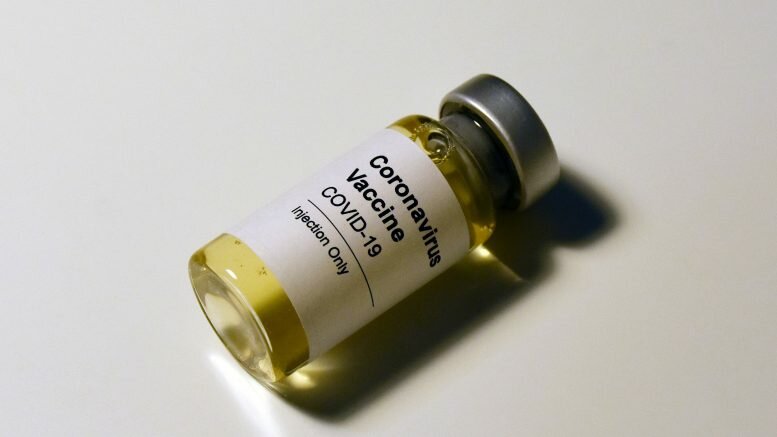An overview of the current AstraZeneca vaccine situation in Europe.
On Thursday, March 11, 2021, Denmark suspended use of the AstraZeneca vaccine (developed in collaboration with the University of Oxford) completely. Some other European countries followed suit.
Here’s what we know so far.
COVID-19 vaccines
There are several COVID-19 vaccines on the market, developed just a year after the pandemic was declared.
It’s important to remember that no vaccine exists (COVID-19 or not) that doesn’t carry some risk of side effects.
WHO approvals
The WHO issued emergency approval for use of the following vaccines (in chronological order):
- Pfizer-BioNTech (approved Dec 31)
- Serum Institute of India Covishield (approved Feb 15)
- AstraZeneca (approved Feb 15)
Seven others are still undergoing the Emergency Use Listing approval process:
- Moderna (earliest exp. in March)
- Johnson & Johnson’s Janssen (earliest exp. in March)
- Sinopharm (earliest exp. in March)
- Sinovac (earliest exp. in March)
- CanSinoBio (earliest exp. in April)
- Novavax (to be planned in April based on company request)
- Sputnik (will be determined when all data is submitted)
A number of vaccines have been rejected by the WHO.
European approvals
The European Commission currently lists four approved vaccines for European citizens:
- Pfizer-BioNTech
- Moderna
- AstraZeneca
- Johnson & Johnson’s Janssen
United States approvals
In the United States, three vaccines are currently approved and recommended:
AstraZeneca is not currently approved in the US. Along with Novavax, the AstraZeneca vaccine has to complete large-scale clinical trials to get potentially approved.
What happened with AstraZeneca in Europe?
January 2021: Questions are raised about AstraZeneca’s effectiveness for older adults
Starting in January, AstraZeneca faced questions regarding its vaccine’s effectiveness on the older population. German newspapers reported on January 25 that the vaccine would probably not be approved by the EU for use on patients over 65 years of age. According to Handelsblatt, the German authorities estimated that AstraZeneca’s vaccine only has an 8% effect on elderly patients.
The company stood by its vaccine, issuing a statement the same day: “In November, we published data in the medical journal The Lancet which showed that the vaccine had a good effect on older adults. 100% of older adults received the necessary antibodies after the second dose.”
The European Medicines Agency (EMA) authorized the AstraZeneca vaccine on January 29, 2021. Though the vaccine’s effect on the older population was somewhat unclear, the vaccine was fully authorized, with the EMA report stating:
“Most of the participants in these [approval] studies were between 18 and 55 years old. There are not yet enough results in older participants (over 55 years old) to provide a figure for how well the [AstraZeneca] vaccine will work in this group. However, protection is expected, given that an immune response is seen in this age group and based on experience with other vaccines; as there is reliable information on safety in this population, EMA’s scientific experts considered that the vaccine can be used in older adults.”
Nonetheless, from early February, Norway and Sweden, among several other countries, advised against the use of the AstraZeneca vaccine on people aged 65 and up.
February 12: Two Swedish regions suspend use of AstraZeneca vaccine due to side effects
On February 12, AstraZeneca’s vaccination was fully stopped in the Sörmland region southwest of Stockholm and the Gävleborg region, about 200 km north of Stockholm. The decision came after 100 out of 400 vaccinated people in Sörmland reported what they suspected to be side effects, such as fever.
AstraZeneca was surprised by the high proportion of symptoms.
“It does not fit what we have seen”, Andreas Heddini, medical director of the Swedish-British pharmaceutical company in the Nordic region, noted.
He said that studies have shown about 10% of people get side effects of the type that were reported.
March 11: Denmark brings bombshell decision to fully suspend the AstraZeneca vaccine. Other countries, including Norway, follow
“Denmark is putting the use of AstraZeneca’s vaccine on hold after several vaccinated people got blood clots”, Prime Minister Mette Frederiksen said on March 11.
One person allegedly died, but whether the blood clots and death were related to the vaccine is not yet clear.
“The health authorities have, due to precautionary measures, suspended vaccination with AstraZeneca following a signal of a possible serious side effect in the form of fatal blood clots. It is currently not possible to conclude whether there is a connection. We act early, it needs to be thoroughly investigated”, Minister of Health Magnus Heunicke wrote on Twitter.
The pause is expected to last 14 days as health authorities investigate the matter.
Five other countries immediately decided to stop the use of AstraZeneca’s vaccine, following the same line as Denmark. These were Austria, Estonia, Lithuania, Latvia, and Luxembourg.
Norway on the AstraZeneca vaccine
Later in the day, Norway also suspended use of the AstraZeneca vaccine.
“We are waiting to see if there is any connection between the vaccination and these cases of blood clots,” infection control director Geir Bukholm at the National Institute of Public Health (FHI) noted.
Technical director of the Norwegian Medicines Agency Steinar Madsen told NTB “We will go through all the side effects reports that may have to do with blood clots”. Madsen added, “We are also looking at individual patients to see if there are conditions that allow them to have a greater risk”.
So far, one case of a blood clot has been confirmed reported after vaccination with AstraZeneca’s vaccine, the Norwegian Medicines Agency told newspaper Dagbladet.
Prime Minister Erna Solberg (H) said that she hopes the uncertainty surrounding AstraZeneca’s corona vaccine will be clarified quickly. She noted that the issue would delay the vaccination in Norway.
“It will prolong the time necessary for us to be fully vaccinated. But I think this will be clarified quickly,” Solberg told newspaper VG yesterday.
March 11: AstraZeneca, British foreign secretary respond to the waterfall decisions
“Patient safety is the highest priority for AstraZeneca. The supervisory authorities have clear and strict efficacy and safety requirements for the approval of all new drugs, and that includes our vaccine.
“The safety of the vaccine has been studied extensively in clinical third-phase studies, and peer-reviewed data confirm that the vaccine is generally well-tolerated,” AstraZeneca wrote in a comment to NTB yesterday.
The company emphasized that they are aware of the Danish investigation.
British Foreign Secretary Dominic Raab also told NTB that the British feel very confident that AstraZeneca’s vaccine is safe.
Yesterday, Raab visited Oslo where he held a press conference with Foreign Minister Ine Eriksen Søreide (H). Raab stated:
“I am aware of the situation here. We have done all the required examinations in the UK, and we are very confident that it is safe to take the vaccine. But we know that we must follow the processes in each country when it comes to security, and we, of course, have respect for the Norwegian approach.”
The European Medicines Agency also addressed the situation on the same day. They stated that they believe the AstraZeneca vaccine can still be used while the investigation into side effects and blood clots is underway.
European health authorities are now investigating whether there may be any connection between the vaccine and the blood clots.
Continue following Norway Today for the latest developments of this situation.
Source: #Norway Today / #NorwayTodayNews
Do you have a news tip for Norway Today? We want to hear it. Get in touch at [email protected]






European reaction to the AstraZeneca vaccine is not based on scientific analysis. It has been based on rumour, fear and embarrassment created by European Union ineptness, inefficiency, dogma and bureaucratic
inertia. The whole European vaccination has looked like a train crash. No wonder Euro governments attempt
to create smoke screens and diversions !
Listen to the daily you tube broadcasts ( daily since circa Feb 2020 ) from medical lecturer John Campbell.
On analysis, since vaccinations began, many more embolisms would have been expected for the numbers
vaccinated whether post vaccination or not.
Still, reactions based on fear and hysteria give EU governments a temporary fig leaf to hide behind. In the end,
this Eu fiascomay benefit its citizens – if the EU learns to devolve more initiatives to individual lands. Strangely, the whole sad saga has proven Brexit to be the good idea it was.